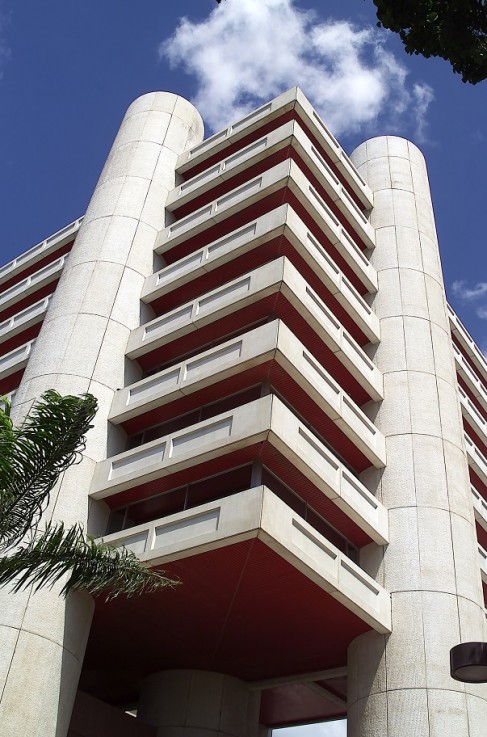- July 12, 2019

The 1970s were momentous. On the global stage, United States President, Richard Nixon, was brought down by the Watergate scandal, the Beatles released their last album, Disney World opened its doors, an energy crisis gripped the world, the Vietnam war ended after 20 years, the British Concorde made its first supersonic flight from London to Paris, the first test tube baby was born and Mother Teresa won the Nobel Peace Prize. And that’s just a snapshot. In the Caribbean, the 1970s was a period when a group of newly independent states fought for their place in the world. But it also signalled the beginning of a transformation of the global financial sector. Financial repression morphed into financial liberalism from the 1970s onwards and there were implications for the region.
A lot has changed since the 1970s when the Central Bank of Barbados was established and controls to regulate the flow of foreign exchange were introduced. The intent was to ensure the country had sufficient international reserves so the fixed exchange rate vis-à-vis the United States dollar could be sustained.
It is now the start of a new era in Barbados. Foreign exchange controls are being relaxed. Effective August 1st, individuals resident in Barbados will be able to open foreign currency accounts for the first time. The process of exchange control liberalisation has reached a significant point, one of great significance for investors and ordinary consumers.
Here are the major changes that have taken place. From July 1st, the increase in foreign exchange limits for personal travel was raised from $7 500 to $20 000 and the two per cent fee on transactions purchased with foreign exchange was capped at $100 000. In addition to residents being able to open and maintain foreign currency accounts with foreign currency earned in Barbados or abroad from August 1, the 70 per cent surrender requirement for foreign currency credited to the accounts of resident holders is also being eliminated. Added to that, the sale of assets to be repatriated in foreign currency may be held in a foreign currency account. These policies were announced by Prime Minister Mia Mottley in her March 20, 2019, Budget and subsequently further outlined by the Central Bank.
The above policy changes signal a significant shift of the long-standing conservative stance adopted by the monetary authorities in Barbados. Barbados is in the early stage of an economic reform programme, one necessitated partly as a result of a major haemorrhaging of foreign reserves over the last several years. In recent months, those reserves have been topped up past US$500 million largely through inflows from the International Monetary Fund and other international financial institutions. It would, therefore, be unwise to simply throw caution to the wind and dismantle a foreign exchange control regime that has served the country well.
But why should the state be able to dictate to any individual or business what they should do with foreign exchange they lawfully earned onshore or offshore? If the above policies are efficiently implemented and closely monitored, Barbados could well gain foreign exchange, not lose it. Businesses with foreign currency deposited in bank accounts overseas now have the motivation and opportunity to repatriate those funds without fear of having to transfer them to the Central Bank. Not being required to have the Central Bank’s “permission” to hold foreign exchange reduces the chance of a foreign exchange black market emerging, a reality some people feared as Barbados’ foreign reserves dwindled in recent years.
Exchange control liberalisation reduces the risk of capital flight and shows investors that Barbados is serious about attracting and keeping them. Businesses that need routine access to foreign currency will benefit from the removal of a large bundle of red tape.
Imagine the ease and relief a corporate entity will have knowing they do not have to fill out numerous forms for the Central Bank to sign off on for their access to such funding. They will be able to access their own funds, financing which they can accumulate from doing transactions overseas. And of course, for a foreign investor, it should be a much easier process to repatriate cash from Barbados when the need arises.
We miss the 1970s for many reasons, not least of all the music. But in these current times of artificial intelligence and digital transactions, ease in exchange controls could be a major fillip for investment and business development as the Barbados economy is reformed.



